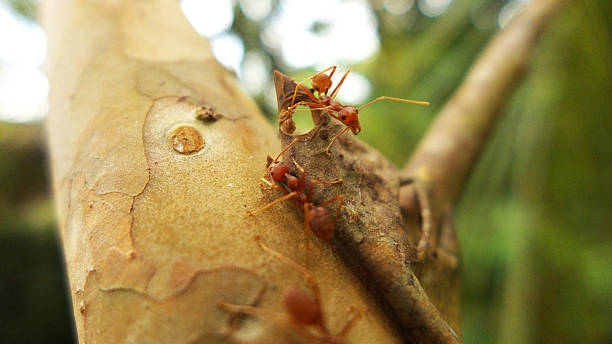Ants are essentially scavengers. Their meals are unpredictable and scattered. Yet even in the hottest and coldest parts of the Earth, ants are able to find their meals and bring them back to their nest. One has to wonder, how are ants able to find their meals quickly and often times with great success?
Behavioral biologist Markus Knaden and his team spent 2 summers studying ants on Tunisia’s salt pans. Because it’s impossible to put a tracking device on the ants directly, the scientists went with them when they foraged for food.
Testing Ants’ Foraging Abilities
The team placed dead insects in various areas of the salt pans, from just a few meters to over 1000 meters from the nest to find out how far these critters would travel to find food and how much time it would take them to do so.
The team found that ants covered distances ranging from 32 meters to as far as 1,238 meters. In the farthest distances the bait (dead insects) was found in 15 minutes, but on average it took them only 4 minutes to find food. It’s interesting to note that the ants only approached the food after passing it downwind and going through some odor molecules from the food. They didn’t notice it while passing the food upwind even if they were in close proximity. This strongly suggests their ability to find food is based on their sense of smell.
According to the data gathered by the researchers, the ants could pick up a scent from over 3 meters away to as far as 6 meters away. They also estimated that during food runs, ants forage areas of approximately 1,500 square meters.
To test further, the researchers attempted to attract some ants with either an odorous compound they have been found to release or dead insects, to find out which of these baits they use to locate food. It was found that the ants were mostly attracted to linoleic acid smell, which is a fatty acid that acts as a death signal for ants and other bugs. When insects detect the smell, they’ll eliminate dead nestmates from their home as a way to prevent the spread of diseases. Some critters like roaches will avoid these areas entirely since it signals that there is a predator or a poison.
But some ants, on the other hand, don’t see this is a warning and instead it signals to them that there’s a dead body they can scavenge. Of the 50 ants they tested for this purpose, the researchers saw only 2 that did not get attracted to the linoleic acid bait.
Returning to the Nest with Food
Once the ants find food they return to their nest. They also do not pay any mind to scent of food around them once they’re carrying food especially those carrying large pieces. The ones with smaller pieces of food are more likely to check the scent out. It’s unclear whether the choice to follow the new scent is based on the value of the food they got or because the smell of the large piece of food masks the necromones that are placed strategically close to their path.
If you have a major ant problem, contact Clark Pest Control before these critters can do a lot of damage to your home.
